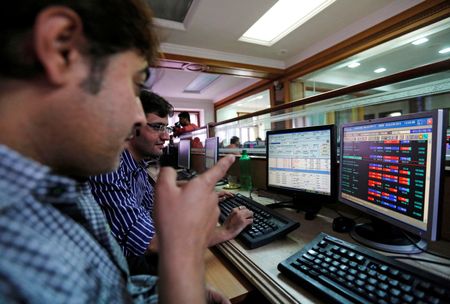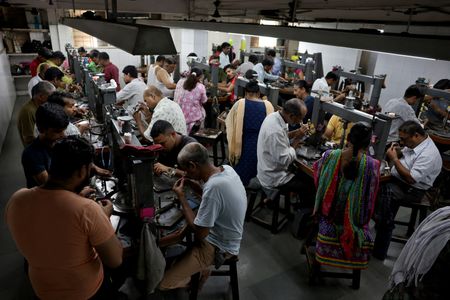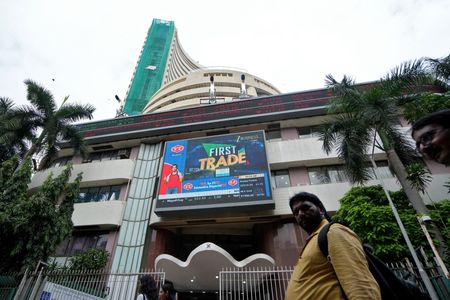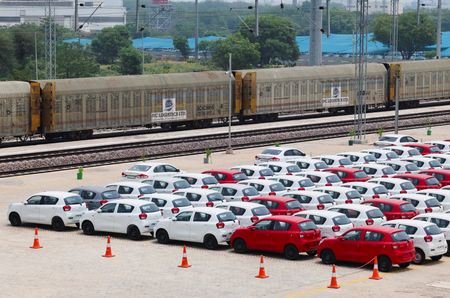By Bharath Rajeswaran and Indranil Sarkar
(Reuters) -Indian shares ended little changed on Saturday as investors were whipsawed by a smaller-than-expected hike in government capital expenditure and plans to boost consumption by cutting personal taxes.
The Nifty 50 was down 0.11% at 23,482.15 points in the special session for the annual federal budget, while the BSE Sensex closed 0.01% higher at 77,505.96.
The benchmarks swung between modest gains and losses through the day as investors assessed various measures announced by Finance Minister Nirmala Sitharaman.
Sitharaman set India’s capex outlay at 11.2 trillion rupees (about $130 billion) for 2025-26, a modest increase from 2024-25, which several analysts termed as a marginal negative for markets.
That put pressure on industrial and infrastructure firms. Larsen & Toubro, PNC Infra and NBCC dropped 3.3%-5.1%. L&T was among the top three Nifty losers.
“Clearly the measures taken to boost consumption have left little headroom with the government for capex allocation,” said Gaurav Dua, senior vice president of capital markets strategy at Mirae Asset Sharekhan.
“Hence, it is not surprising that the capital goods, engineering and infrastructure companies sulked post the budget.”
The government’s plans to cut personal tax rates, however, came as a relief for a country struggling with slowing consumption.
Consumption-linked sectors such as fast-moving consumer goods rose 3%, while auto and realty gained 2% and 3.4%, respectively.
The more domestically focused mid-caps shed 0.4% and small-caps closed 0.4% higher.
Analysts said the budget broadly met investors’ expectations, giving investors the leeway to take a pause after gaining about 3% in the last four sessions in the run-up to the budget.
Among other stocks, food delivery companies Zomato and Swiggy jumped 7.3% and 4.7%, while restaurant operators Sapphire Foods, Restaurants Brands Asia, Jubilant Foodworks, Devyani International climbed 2.6%-6.5%.
Footwear makers rose on plans to support the leather industry, while tourism-linked companies gained on proposals to develop top destinations with key infrastructure.
Meanwhile, insurance companies fell as analysts said the new tax benefits for consumers could take the shine off some insurance products that sell tax-saving incentives.
(Reporting by Bharath Rajeswaran and Indranil Sarkar in Bengaluru; Editing by Sonia Cheema and Saumyadeb Chakrabarty)










